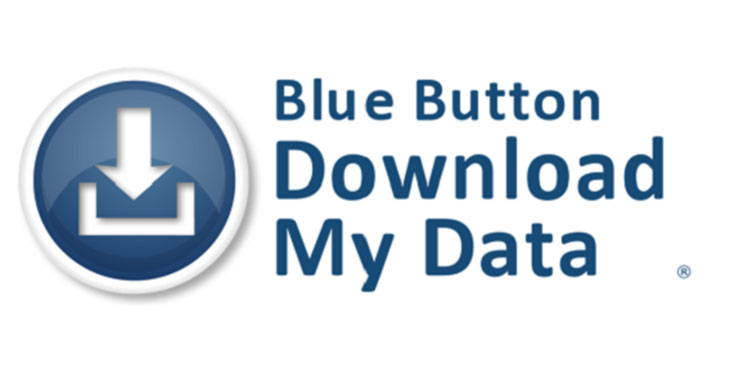Did you know that about half of VA patients seek health care at both VA medical facilities and at facilities in their local communities?
Helping rural Veterans gain access to their electronic health records can help them better coordinate care among providers inside and outside of VA. Improving access to important health data, while enhancing care coordination between VA and community based providers are a few goals of an ongoing nine-state pilot project called the Veteran Initiated Electronic Care Coordination (VIECC) project.
VIECC — a joint VA/U.S. Department of Health and Human Services pilot project — is designed to help Veterans access their VA health data. Veterans can use the Blue Button feature of their online patient portal, My HealtheVet to produce a VA Health Summary. They can then share this document with their community health providers to coordinate care.
“Encouraging early findings from this study already suggest that we’re on the right path. That means the use of the VA Health Summary can lead to better care coordination along with cost savings,” said Dr. Carolyn Turvey of the Iowa City VA Health Care System, and co-leader of VIECC.
Here’s how one Veteran benefitted from this project:
An 83-year-old man went to Heart of Florida Health Center with his caregiver daughter. He was suffering from lung cancer, anemia and only had one kidney, and they couldn’t remember what medicines he took.
Dr. David Willis, a family physician in Ocala, Fla., and medical director at Heart of Florida, used the VA Health Summary information to determine that the patient was on 27 medications, had 33 health problems and had multiple appointments in the prior four months at VA. Dr. Willis said the VA Health Summary provided a complete picture of the patient’s condition, allowing him to make immediate medication adjustments and order follow up treatments. The patient’s VA health information will also be available to the patient’s other community providers through the local Health Information Exchange, MyHealthStory.
At a recent summit on transforming Veterans’ care, preliminary findings from VIECC suggest that when Veterans have access to their VA Health Summary and share their VA data with their community providers, health care continuity improves.
VIECC co-leaders Dr. Turvey and Dawn Klein, also of the Iowa City VA, recently shared key findings from the ongoing VIECC pilot evaluation.
- 93 percent of community providers reported they had confidence in the accuracy of the information provided in the VA Health Summary.
- 50 percent of community providers indicated they avoided a duplicate blood test because they had access to lab results from the VA Health Summary.
- 88 percent of Veteran patients said they would begin regularly sharing their VA Health Summary with their community providers.
- 79 percent of Veteran patients reported that access to and use of their VA Health Summary will help them be more involved in their own health care.
- 6 percent of Veterans indicated there was inaccurate information in their VA Health Summary. Of these Veterans, 44 percent contacted their VA health care team and reported corrective actions taken.
Early results demonstrate Veterans feel more engaged in their health care when they use Blue Button to access their VA Health Summary — leading to better and more efficient health care delivery.
“Providing patients the ability to download and share their health information through the Blue Button provides these Veterans and their providers with the right information, at the right place, at the right time. Patient engagement is critical to timely and effective health information exchange,” Dr. Turvey said.
Experience from the VIECC pilot will continue to help Veterans gain access to their electronic medical records, particularly in rural America, and lead to improvements that help Veterans coordinate care between their VA and community providers.
About the authors: Leila Samy is a Rural Health IT Coordinator in the Office of the National Coordinator for Health IT, U.S. Department of Health and Human Services. Gina Capra is director of VA’s Office of Rural Health.
Topics in this story
More Stories
The Medical Foster Home program offers Veterans an alternative to nursing homes.
Watch the Under Secretary for Health and a panel of experts discuss VA Health Connect tele-emergency care.
The 2024 National Veteran Suicide Prevention Annual Report provides the foundation for VA’s suicide prevention programs and initiatives.







I want to sync “My HealtheVet” and VA eBenifits